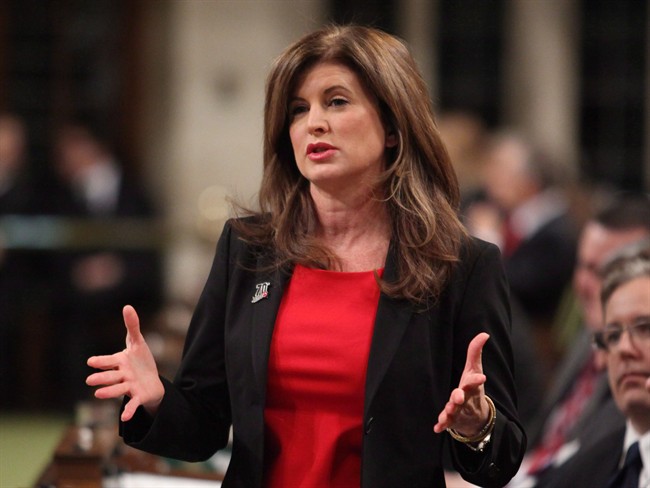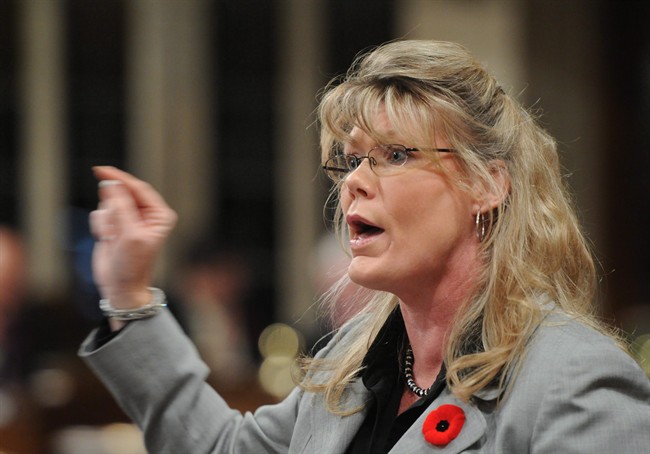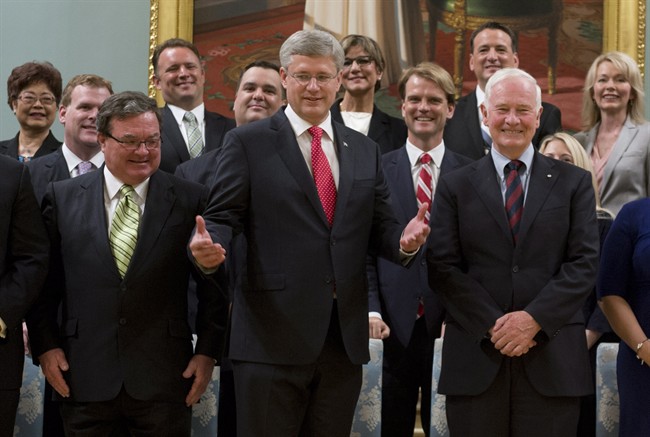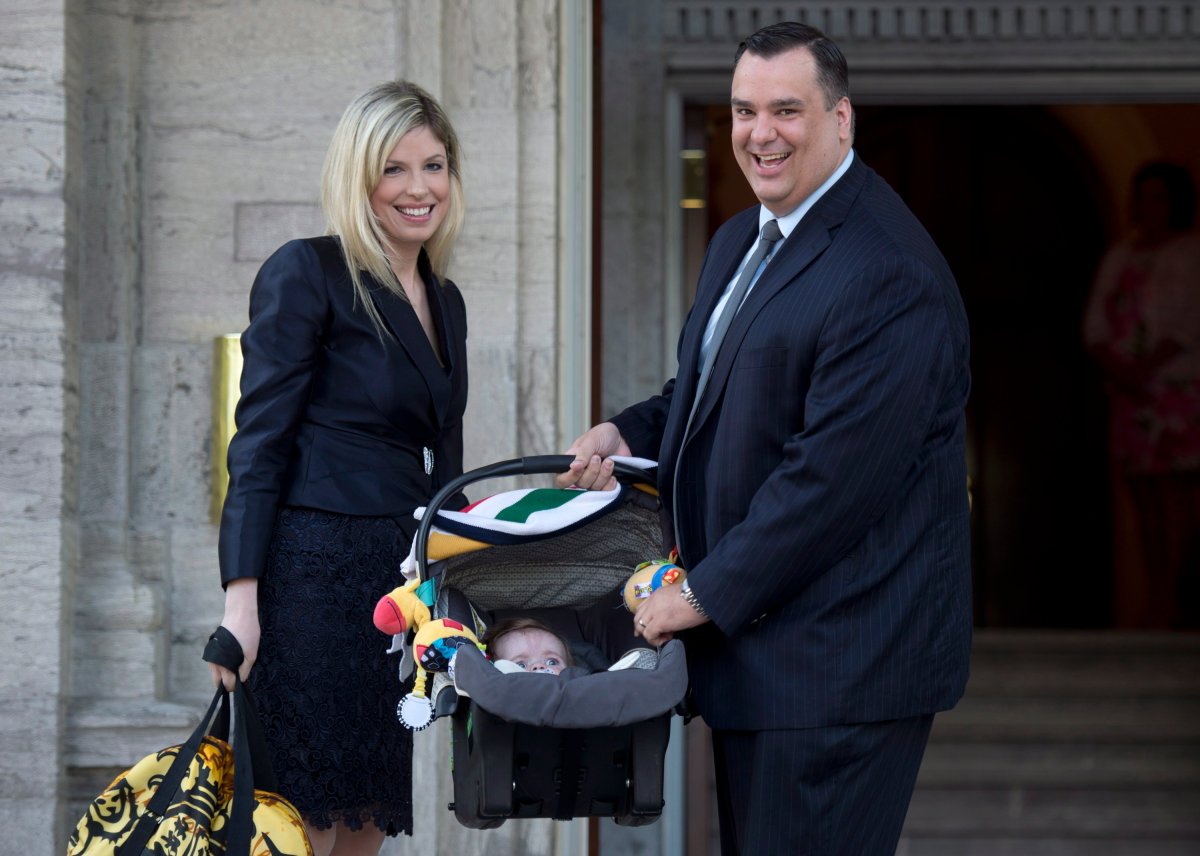OTTAWA – How does the prime minister choose who’s fit to lead a ministry? Does he look for someone in his caucus that’s a natural fit or, rather, does he reward the hard workers with available portfolios?

Depends who you ask.
When Prime Minister Stephen Harper revealed his new cabinet this week, some of the announcements confirmed speculation, while others had political observers raising an eyebrow wondering whether the chosen ones had the necessary background.
“It helps if you have the training. An awful lot,” said Penny Collenette, a former Liberal strategist. “If you don’t know anything about the file or you don’t have any interest in the file – for example, in industry, if you’ve never been in business – good luck.”
On the other side of the coin, Jason Lietaer, a Conservative insider, said the most important attribute is competence.
“Virtually anyone can do any job so long as they’re competent, they work hard and they study their briefing,” he said.
Below is a look at some of this week’s cabinet appointments and the ministers’ qualifications.

Peter MacKay
Peter MacKay’s time as defence minister grew a little turbulent after coming under fire for using a military search-and-rescue helicopter during vacation, then becoming the government’s face of defending its botched fighter jet procurement process. On Monday, the prime minister moved MacKay out of defence and into justice – a position for which he is arguably qualified.
MacKay was called to the Nova Scotia bar in 1991, and was then appointed as Crown Attorney for the Central region of Nova Scotia two years later. When he was first elected to the House of Commons as a Progressive Conservative in 1997, he served as justice critic. He also sat on the Commons justice and human rights committee.
When the Conservatives won the 2006 election, Prime Minister Stephen Harper named MacKay the foreign affairs minister before shuffling him to defence during the summer of 2007. He has held the position ever since – until this week.
Rob Nicholson
… Which brings us to Rob Nicholson, who swapped files with MacKay, moving from justice to national defence. Nicholson was a practicing lawyer before stepping on to the political stage in 1984, and has held the justice portfolio since January 2007.
Nicholson doesn’t have direct experience with the defence portfolio. One benefit of not having dipped his hand into the defence file, however, is that Nicholson, an unquestionably experienced politician, gets to walk into the relatively messy situation with clean hands.

Rona Ambrose
Rona Ambrose is no stranger to shuffles and juggling portfolios. She has held numerous files throughout her time in government including intergovernmental affairs, president of the Queen’s Privy Council for Canada, labour, western economic diversification, public works, status of women and, as of Monday morning, health.
Ambrose was an associate member of the Commons health committee from 2004-05. Aside from that and her diverse portfolios, Ambrose also brings with her a long list of professional experience pre-politics, according to her official profile: columnist, communications consultant, policy analyst, public policy consultant and public servant.
The Canadian Medical Association on Monday issued a statement welcoming Ambrose to her new appointment “at a time when pressing budgetary concerns and an aging population are putting increasing pressures on our health-care system.”
James Moore
After nearly five years as heritage minister, James Moore moved to Industry Canada on Monday. The department is tasked with encouraging and nurturing a “growing, competitive, knowledge-based Canadian economy” through innovation and investment.
Before getting into politics, Moore was a broadcaster. Moore has sat in on Commons industry committee meetings, but without any practical business experience getting a grasp on the file could be difficult, said Collenette, who is also an adjunct professor at the University of Ottawa.
Chris Alexander
Chris Alexander is a former diplomat who arrived on Parliament Hill in 2011 and became parliamentary secretary to the defence minister. He took one big step up the political ladder Monday when Harper named him immigration minister, shuffling him into Jason Kenney’s old office. (Kenney became minister of employment and social development.)
Collenette notes that Alexander is respected for his diplomatic work, but that his lack of experience on the Hill could prove troublesome. “Immigration is a very, very difficult portfolio, and often very political. I’m just not sure he’s got the political instincts,” she said.
Lietaer, on the other hand, said Alexander will bring a “ton of international experience” to the immigration portfolio.
“He’s someone who has travelled widely, been a diplomat, been in some war-torn areas, seen the world, knows how it affects Canada,” he said.

Shelly Glover
Shelly Glover was a police officer before winning her Manitoba riding in the 2008 election and stepping into the several parliamentary secretary roles including official languages, aboriginal affairs and, most recently, finance. As of Monday, she took over James Moore’s heritage and official languages file.
She has sat on both the heritage and official languages committees. But still, Collenette doesn’t see the fit.
“I’m happy to see a woman appointed to such a senior position as heritage, but I just don’t understand a former police chief going into heritage,” she said.
Lietaer, however, pointed again to his key ingredient – competence.
“She’s a police woman. Could she be the minister of public safety? Sometimes. But is it better, if she’s a competent leader and a competent minister, you can do pretty much anything in cabinet,” he said.






Comments